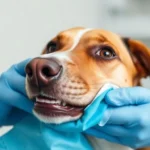
Introduction
Maintaining the health of our canine companions is not only a responsibility but a labor of love. Proper dog health care is essential for a long and fulfilling life, especially for large breeds like Mastiffs. Known for their imposing size and gentle nature, Mastiffs are a beloved breed among dog enthusiasts. However, they are predisposed to specific health issues that every owner should understand.
This article aims to provide an in-depth look into Mastiff health problems, exploring their unique characteristics, common health issues, and the importance of regular veterinary care. By understanding these aspects, owners can take proactive steps to ensure the well-being of their Mastiffs.
Understanding Mastiffs
History and Characteristics of Mastiffs
Mastiffs have a rich history that dates back thousands of years. Originating from ancient civilizations, they were bred for various purposes, including guarding, hunting, and war. These dogs are known for their large, muscular build, broad heads, and short coats that can come in various colors such as brindle, fawn, or apricot.
In terms of temperament, Mastiffs are generally known for their loyal, protective, and gentle nature. They are good-natured and often form strong bonds with their families, making them excellent companions and guardians.
Common Health Traits in Mastiffs
As a giant breed, Mastiffs have specific health predispositions that set them apart from smaller breeds. Their size often leads to various health challenges, making it essential for owners to be informed about these issues. Understanding the common health traits in Mastiffs can help owners be proactive regarding their dog’s health.
Common Mastiff Health Problems
Hip Dysplasia
Hip dysplasia is a genetic condition where the hip joint doesn’t fit snugly into the hip socket. This can lead to arthritis and pain, significantly affecting a Mastiff’s quality of life.
Causes include genetics, rapid growth during puppyhood, and environmental factors. Symptoms often manifest as reluctance to walk or run, difficulty getting up, or a “bunny hop” gait.
Diagnosis typically involves physical examinations and X-rays. Treatment options range from medication and weight management to surgical interventions in severe cases. Preventive measures include maintaining a healthy weight and providing appropriate exercise to minimize stress on the joints.
Elbow Dysplasia
Similar to hip dysplasia, elbow dysplasia is a common issue in large breeds like Mastiffs. It involves the malformation of the elbow joint, leading to pain and limited mobility.
Causes include genetic factors, growth rate, and trauma. Symptoms often include lameness in the front legs, difficulty in movement, and swelling around the elbow.
Diagnosis is achieved through veterinary examination and imaging techniques. Treatment may involve medication to manage pain, physical therapy, or surgical options. Preventive measures focus on controlled exercise and weight management to reduce joint stress.
Bloat (Gastric Dilatation-Volvulus)
Bloat, or gastric dilatation-volvulus (GDV), is a life-threatening condition where the stomach fills with gas and twists. This is particularly common in deep-chested breeds like Mastiffs.
Risk factors include eating large meals, vigorous exercise after eating, and stress. Symptoms include a swollen abdomen, restlessness, and signs of distress.
Emergency response is critical—if bloat is suspected, immediate veterinary care is necessary. Prevention strategies include feeding smaller, more frequent meals, avoiding strenuous activity after meals, and considering gastropexy surgery for at-risk dogs.
Heart Problems (e.g., Dilated Cardiomyopathy)
Mastiffs are also susceptible to heart issues, particularly dilated cardiomyopathy (DCM), which affects the heart’s ability to pump blood effectively.
Symptoms can include lethargy, coughing, and difficulty breathing. Diagnosis involves veterinary examinations, including echocardiograms and ECGs. Treatment options may include medications to manage the condition and lifestyle adjustments. Regular veterinary check-ups are essential for early detection.
Osteosarcoma
Osteosarcoma is a type of bone cancer that is more prevalent in large dog breeds, including Mastiffs. This aggressive cancer can lead to significant pain and requires prompt attention.
Symptoms include swelling at the site of the tumor, lameness, and reluctance to move. Diagnosis generally involves X-rays and biopsies.
Treatment may include amputation of the affected limb, chemotherapy, and pain management strategies. Prognosis varies, making early detection crucial.
Skin Issues
Mastiffs can also experience various skin conditions, including allergies, hot spots, and skin infections. These can be caused by environmental factors, food allergies, or parasites.
Symptoms often include itching, redness, and hair loss. Diagnosis typically involves a thorough examination and sometimes allergy testing. Treatment options may include medicated shampoos, topical treatments, and dietary adjustments to manage allergies.
Importance of Regular Veterinary Care
Routine Check-Ups
Regular veterinary visits are crucial for early detection and management of health issues in Mastiffs. These check-ups allow veterinarians to monitor the dog’s overall health and identify potential problems before they become serious.
As a general guideline, Mastiffs should see a veterinarian at least once a year, but more frequent visits may be necessary for older dogs or those with existing health issues.
Vaccinations and Preventive Medications
Vaccinations are vital for preventing various diseases. Essential vaccinations for Mastiffs include rabies, parvovirus, distemper, and Bordetella. Additionally, preventive medications for parasites such as fleas, ticks, and heartworms are essential for maintaining health.
Nutrition and Diet Management
A balanced diet plays a significant role in a Mastiff’s overall health. High-quality dog food that meets the nutritional needs of large breeds is essential. Owners should be mindful of portion sizes and feeding schedules to prevent obesity, which can exacerbate health issues.
Supplements such as omega fatty acids, glucosamine, and chondroitin may also benefit joint health and skin conditions. Always consult with a veterinarian before introducing new supplements or dietary changes.
Lifestyle Factors Affecting Mastiff Health
Exercise Requirements
Regular exercise is essential for maintaining a healthy weight and promoting overall well-being in Mastiffs. While they are not as energetic as some breeds, they still require daily walks and playtime to stay fit.
Recommended exercises include leisurely walks, swimming, and gentle play sessions. Owners should be cautious not to overexert their Mastiffs, especially in hot weather.
Weight Management
Maintaining a healthy weight is critical for large breeds like Mastiffs. Obesity can exacerbate existing health issues, such as joint problems and heart disease.
To monitor weight, owners should regularly check their dog’s body condition score and adjust feeding and exercise routines as necessary. Consulting with a veterinarian can provide personalized guidance on weight management strategies.
Mental Stimulation
Mastiffs, like all dogs, require mental stimulation to ensure their overall well-being. Engaging activities can help prevent boredom and reduce behavioral issues.
Activities such as puzzle toys, obedience training, and interactive games can keep Mastiffs mentally engaged. Regular socialization with other dogs and people is also beneficial for their mental health.
Owner Responsibilities
Being Informed
As a Mastiff owner, staying informed about breed-specific health issues is essential. Educating oneself about potential health problems can facilitate early detection and intervention.
Resources for further information include veterinary articles, breed-specific organizations, and forums where owners can share their experiences.
Building a Strong Vet Relationship
Choosing the right veterinarian is vital for your Mastiff’s health care. Look for a vet who specializes in large breeds and has experience with Mastiffs. Establishing a strong relationship with your vet can ensure effective communication regarding your dog’s health.
Emergency Preparation
Being prepared for health emergencies is crucial for any dog owner. Familiarize yourself with basic first aid for dogs and have a plan in place for emergencies.
Keep a well-stocked first aid kit and know the location of the nearest emergency veterinary clinic. Regularly practicing emergency procedures can help reduce panic during real situations.
Conclusion
Understanding Mastiff health problems is crucial for any owner dedicated to providing the best care for their furry friend. By being proactive and informed about potential health issues, regular veterinary care, and lifestyle factors, you can help ensure a long, healthy life for your Mastiff.
Owning a Mastiff is a rewarding experience filled with love and companionship. Embracing the responsibilities that come with it will enhance the bond you share with your loyal friend, ensuring they live a vibrant and fulfilling life.
Call to Action
If you own a Mastiff, consider scheduling a vet visit to discuss any health concerns or preventive measures. Stay informed by subscribing to dog health newsletters or blogs for ongoing education, and feel free to share your experiences with Mastiff health issues in the comments section.









